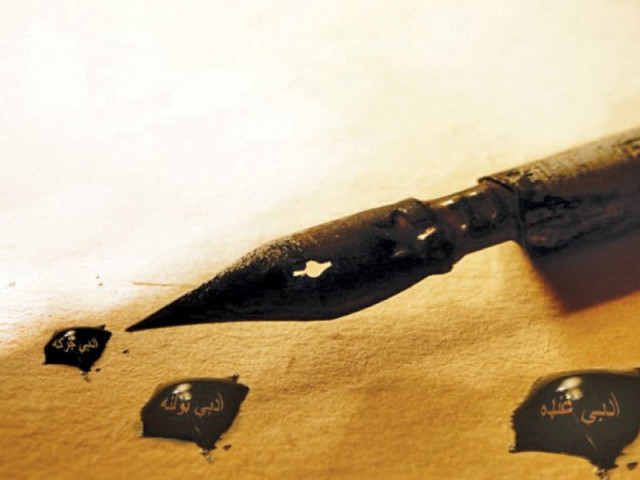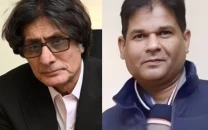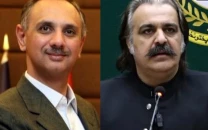Women celebrated as Hyderabad Literature Festival concludes
Speakers call for digitising Shah Abdul Latif Bhittai’s work

The women writers of Sindhi poetry and prose have although risen in numbers over the last decade or so, shackles constricting greater expression of feelings and ideas remain.
These views were expressed in a session titled ‘Meet Leading Female Poetesses’ on the concluding day of the two-day Hyderabad Literature Festival, organised on the premises of Sindh Museum, on Sunday.
“There was a time, until some decades ago, when Noor Shaheen was the only Sindhi woman who recited poems in mushairas. Some years later, Sehar Imdad followed, and today there are many poetesses,” said poet Attiya Dawood. “Though the situation has improved, Sindhi men still don’t seem to understand or support the feminist approach, despite generally being liberal.”
Poet Farzana Shaheen said in Sindhi society, women who wanted to write faced many obstacles.
Read more: Fourth Sindh Literature Festival concludes
“Our generation has paved the way but the younger generation will have to withstand those societal challenges and continue the struggle to win greater freedom,” she said.
Journalist and poet Nasira Zuberi recalled that she started writing when a martial was imposed under Ziaul Haq’s regime, when student unions were banned, people were being flocked and jailed and censorship was at its peak.
“That situation imbued a streak of resistance in my mind which you will find reflected in my work,” she told the audience.
For poet Tanveer Anjum, the magnitude of impediments has reduced for women over the years.
Earlier in the session, Azra Abbass, Zuberi, Anjum, Dawood and other poets read their poems and a book titled ‘Udasi Ke Ghao’ [The wounds of sorrow], authored by Abbas, was launched.
During another session, Kanwal Nizam Bhutto, a Pakistan administrative services officer, said, “It is often thought that the administrative positions are created only for men and that they are not fit for women. But this is a gross misconception.”
She said Sindhi women belonged to a province which gave first woman prime minister to the Muslim world.
“But unfortunately, we see women as incapable in the same province,” she lamented.
The books of multiple women educationists were launched at the session, where the authors also shared their life stories.
Virtual world of education, art and literature
Separately, Sumair Qureshi of Oxford University Press said they had been organising literature festivals in Karachi and Islamabad for years, but moving them to digital platforms during the pandemic emerged as a big challenge.
Ahmed Seelro, who runs a visual diary and an electronic diary on Facebook, shared his experience of broadcasting Karachi and Hyderabad literature festivals live on social media. He said they shared their idea of live coverage with the Sindh Culture Department that provided them the required support.
Qadeer Kandhro spoke about how his Sindh online school provided a medium of learning to students belonging to underprivileged strata of society.
“During Covid-19, some educationist friends volunteered and we launched this website, which is providing premium online education for free to our 200,000 students,” he said. “There is no other website like ours, which has digitalised the entire coursework of the Sindh Textbook Board.”
Published in The Express Tribune, March 23rd, 2021.


















COMMENTS
Comments are moderated and generally will be posted if they are on-topic and not abusive.
For more information, please see our Comments FAQ